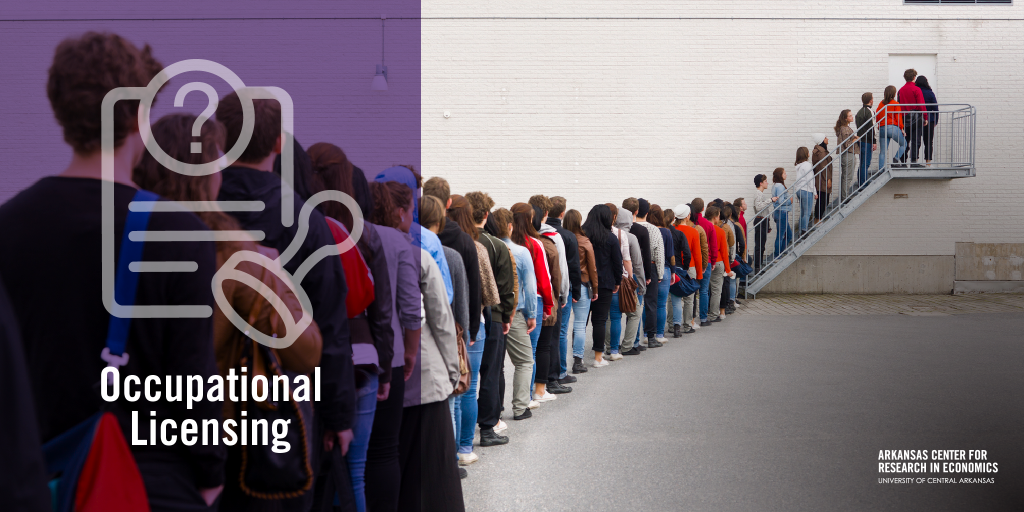By Caleb Taylor
ACRE Undergraduate Research Fellow Tanner Corley presented his research at the virtual Knee Center Occupational Licensing Conference on May 29.
Corley received feedback from other conference participants and economists from a variety of policy groups including Dr. Morris Kleiner, a nationally recognized expert on occupational licensing, professor, and AFL-CIO Chair in Labor Policy at the Humphrey School of Public Affairs. Corley is mentored by ACRE Scholar in Residence Dr. Marcus Witcher.
The Knee Center for the Study of Occupational Regulation is an academic research center at St. Francis University in Loretto, PA.
Corley is currently researching the motivations behind barber regulations in Arkansas in a paper entitled “For Public Health or Private Gain?” co-authored with Witcher.
From the abstract of the paper:
“For Public Health or Private Gain?” explores the development of the Barber Board in Arkansas during the Great Depression. Proponents of the barbers’ license law garnered support by adopting progressive era tactics. They decried unsanitary conditions as a public health threat while also complaining that increased competition drove down “proper” barber’s wages. Unions were the main supporters for regulation and saw licensing laws as an “end-all” to their efforts. The local and international Journeyman Barbers’ Union played a key role in getting a license law in Arkansas. Attempts to modernize and professionalize the trade for the barbers’ own benefits had mostly been unsuccessful until unions found power in the state legislature. By creating the Board of Barber Examiners, backed by the State of Arkansas, the barber’s union in Arkansas was able to create regulations that benefited the most well-off barbers by pushing out competition and creating barriers to employment for poor laborers. Taking into account the effects of barbers’ license law in Arkansas, this paper will explore how the law came into effect and what proponents of the law sought to achieve by creating this regulating policy.”
Cato Journal has accepted the paper for their Winter 2021 issue.
Tanner Corley is from Bismarck, Arkansas. He is a senior with a double major in History and Political Science. After graduating he plans to attend graduate school for history.
Corley is a part of ACRE’s Research Fellowship Program.
For more of our work on occupational licensing, check out our labor market regulation page.

